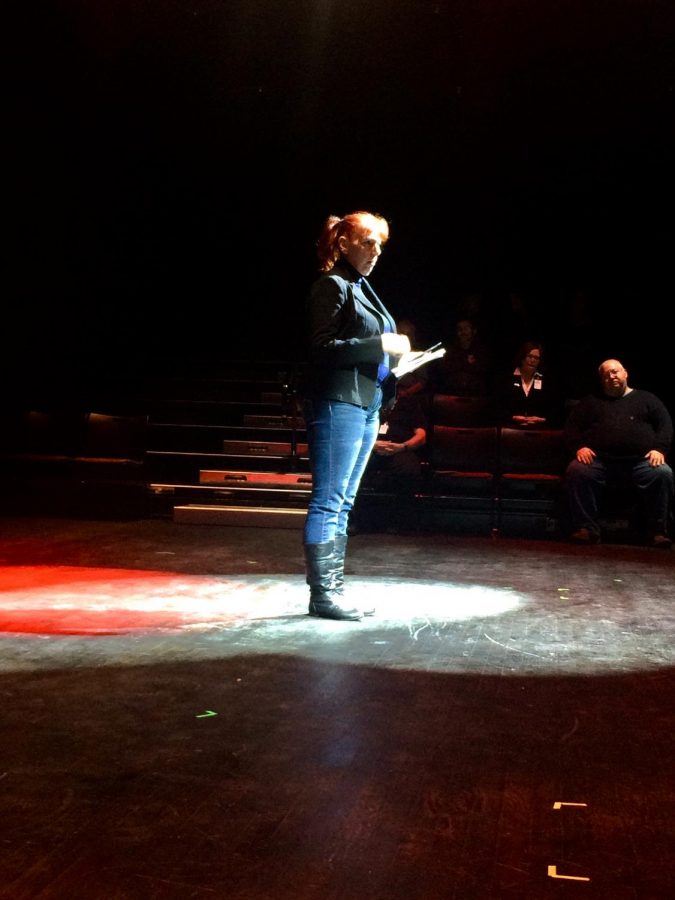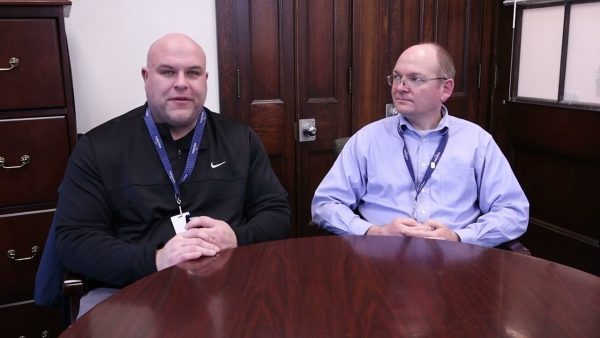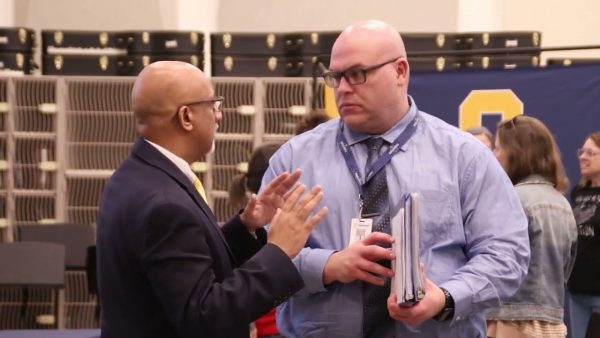Cultivating a creative atmosphere in Dayton
Part I of III in series
Dayton has long been considered a center of creativity. There have been many historic inventions that originated in the area. Kevin Moore, artistic director of the Human Race theatre company, stated that at one point there were more patents per capita in Dayton than any other city in the United States. Even further back in history, Native American fables say that this area had a special energy due to the convergence of the five waterways. While Dayton may no longer be as focused on inventing as it once was, it is still a hub for creativity. One of the biggest draws to the downtown Dayton area is its theatre scene.
“I think there is an interesting energy in Dayton that has cultivated creativity in all aspects. I think it was industry for a long time, and now I think it’s arts,” Moore said.
Dayton truly has a very high number of theatre companies for the size that it is, including The Human Race, Muse Machine, The Playground Theatre, Dare2Defy Productions, The Dayton Theatre Guild, and the Dayton Performing Arts Alliance, just to name a few. Whether or not Dayton is actually a cosmic center for creativity, it is surprising to see so many creative groups in such a small radius.
“I think Dayton’s arts community is actually pretty well respected around the country to have the size of city that we are to have as many professional arts groups as we have,” Moore said.
Dayton maintains a professional philharmonic orchestra, opera company, ballet company, and a number of professional and community theaters. There are also several theaters in the area that touring companies come to when doing national tours of broadway shows.
“All of these things really make this a very diverse and very captivating community,” Moore said.
One contributing factor to the community may be the number of area colleges that are known for having competitive creative collegiate programs.
Becki Norgaard, executive director of Dare2Defy productions said, “I think we were lucky several decades back to have a wealth of creative people who decided that they wanted to invest their passion into the community rather than move on and do it somewhere else and because that happened we grow more of those people.”
Philip Drennen, a local actor and voice teacher for Singing Elephant Studios recently moved to Dayton after performing in New York, with touring shows including the national tour of Altar Boyz, and various gigs in Las Vegas. While he did graduate from the Cincinnati Conservatory of Music, he wasn’t aware just how many live performances Dayton has to offer.
“I didn’t know when I moved back here that I was even going to pursue performing in theatre I didn’t know what there was to offer and I just started looking around online at different companies and auditioned for a few places,” Drennen said.
Dayton is a smaller city than many of the areas that are well known for being performing arts focused cities such as New York City or Chicago which causes a shift in the working environment.
“In New York, the theatre community lives and breathes [performing], but being able to sustain yourself there to be part of that has gotten more and more challenging over the years. It was always the struggle,” Moore said.
Many performing artists dream of living in New York, but it is incredibly difficult to sustain oneself on an actor’s salary with a big city expense. Living the “starving artist” lifestyle may turn many actors away from pursuing a job in the creative field, but Dayton provides somewhat of an alternative.
“[It can help] to be in a city where that struggle isn’t as numbing as perhaps it is somewhere else so that you don’t lose the magic of theatre that brought you there in the first place,” Moore said.
Dayton seems to be a city that has just as much creativity and passion as a bigger city would, but it allows for a less cutthroat environment. There’s a smaller, more tight-knit pool of people working together. A lower cost of living and a decreased pool of auditioning actors allows a far greater chance for working actors in the area to be onstage.
“Since I’ve been back this past year I’ve played more leading roles than I have in my entire career, and it’s not because I’m better than anyone in town it’s just because the competition is smaller,” Drennen said.
Working in a smaller town may not have the same reputation that a bigger city has, but for many people the important part is just being involved. Norgaard realized just how much of a connection she had to live theatre after returning to the stage following many years of not being able to participate due to her service in the military and taking care of her children.
“I didn’t realize how much I missed it. Once I got back onstage I felt like I was fully alive for the first time. I think there’s a lot of people who have that in them, if they’re not doing it they’re not living their full life. I don’t know how else to explain it,” Norgaard said.
Besides the personal benefit theatre brings, it adds a lot to the community of the downtown area as well. A strong arts community is an important factor for businesses looking to locate somewhere new, and Dayton’s theatre and arts communities help to make it a far more viable candidate.
“What brings people downtown in the evenings expect the arts and baseball. That’s what the foot traffic is, that’s who’s using the restaurants. It’s a huge economy boost so it’s very valuable,” Moore said.
The symbiosis of the aspects of the downtown community further illustrate the benefits a thriving arts community brings to a city. Drennen noted an experience during his most recent show in which a coffee shop next door to the theatre stayed open later to bring in customers going to the show.
Drennen said, “I just love seeing those little things happen. And it’s not just promotion as far as financial gain for these companies but just to show that that is the standard in dayton, that we help each other out and are there for each other because I think that Daytonians want this city to thrive.”
To read Part II of this series click here
To read Part III of this series click here
A previous version of this article misspelled the name Philip Drennen. The Ax regrets this error.












